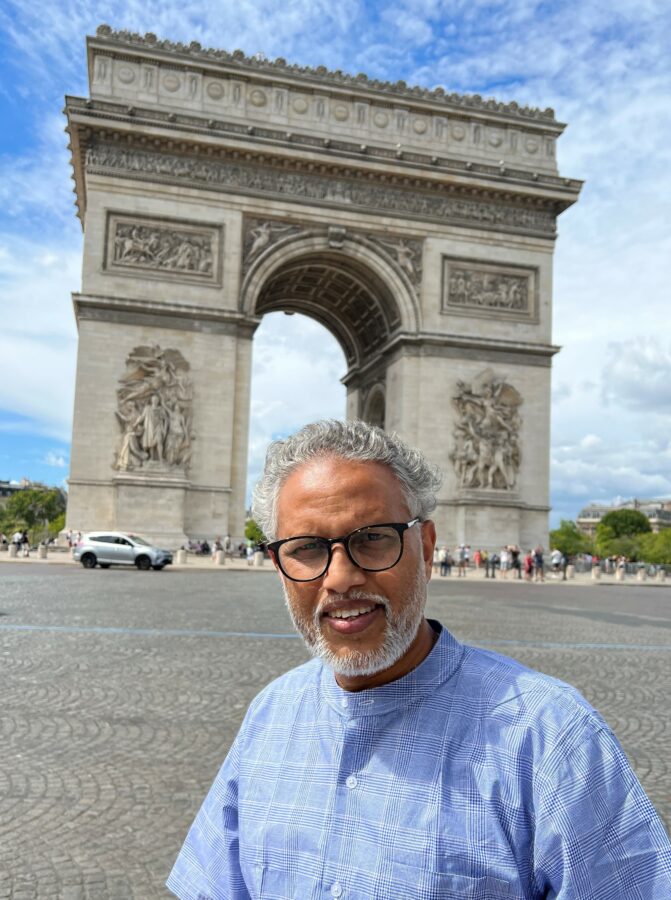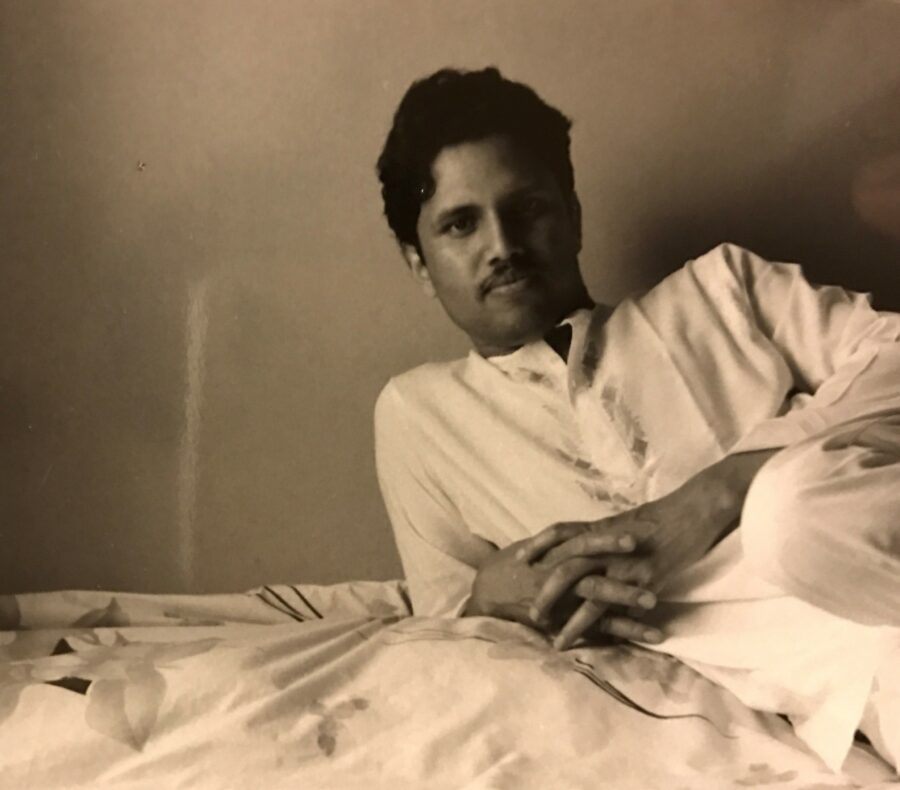 My date of birth is a mystery. Officially, it is December 31, 1953. The date was mentioned in my high school record. No one knows how this date originated. It appears that several of my classmates received the same date in their school records too. Birth and death recording was not a formal thing at that time in my homeland. My mother passed away when I was very young. So, I approached my auntie to find out more about my birth date. Her version of the story was that it could be sometime at the end of 1954 or beginning of 1955, as she recalled that my mother was pregnant with me when she got married in 1954. In any case, it could be plus or minus a year from the date on my records.
My date of birth is a mystery. Officially, it is December 31, 1953. The date was mentioned in my high school record. No one knows how this date originated. It appears that several of my classmates received the same date in their school records too. Birth and death recording was not a formal thing at that time in my homeland. My mother passed away when I was very young. So, I approached my auntie to find out more about my birth date. Her version of the story was that it could be sometime at the end of 1954 or beginning of 1955, as she recalled that my mother was pregnant with me when she got married in 1954. In any case, it could be plus or minus a year from the date on my records.
I spent my early school years in a remote village school in East Pakistan which was established in 1947 when British India was divided into three pieces. West Pakistan was on one side of the subcontinent and east Pakistan on the other with 1,000 miles of India in the middle. The British imposed a solution that led to the creation of “two Pakistans.” However, this arrangement was unsustainable and resulted in a bloody liberation war in 1971. As a result of this conflict, Bangladesh emerged as an independent nation. I was in the 11th grade during that time. Many of my friends participated in the war, and I was an active supporter as well.
After completing the 12th grade in 1973, I attempted to get admitted into medical school a couple of times but failed. It was a frustrating experience and I found it difficult to reset the goals of my life. I ended up spending two years studying different subjects until one day I came across an article about the Swedish education system. I submitted a formal application to the Swedish Education Board and my application was accepted.
I was the first person in my family to move or study abroad. In the beginning of Summer 1979, I arrived at Stockholm Airport without knowing anyone in Sweden or where I would even stay that night. All I knew was the address of a Bangladeshi man named Mainul Haque, who had lived in the same village as my family. I had not been in contact with him however, nor had prior communication. Mr. Haque had no prior knowledge about my coming to Sweden. My family collected his address from someone and gave it to me, hoping that he might be able to help me. I had to hope that he would be there and be willing to assist me.
At the time, the Swedish language was unfamiliar to me. Thankfully, I was able to communicate in English when I approached the airport information center to obtain directions to Mr. Haque’s address in Upsala. When I arrived at the building, the entrance door was locked but luckily someone was coming out and I was able to enter. I presented the address slip to several people, but none of them recognized the name “Mr. Haque.” Luckily, I didn’t have to wait for too long as an Asian-looking man appeared walking down the stairs. To my amazement, it was Mr. Haque himself. He welcomed me to his room, and I stayed with him for two weeks.
Upsala is a small university town outside of Stockholm. So, he made arrangements with one of his friends in Stockholm and handed me over to Mr. Ataur Rahman who helped me a great deal and with whom I became good friends throughout my life in Sweden and beyond. I am grateful to both Mr. Haque and Mr. Rahman for their support during a very important time in my life.
Since Swedish schools were closed for the summer months, I was able to work for three months and earn some income, which helped me continue with my education. Swedish education is basically free up to the university level. It took me almost two years to learn Swedish. I finished my university diploma in 1984 and eventually I finished my post-graduate degree in Urban and Regional Policy Planning from the School of Architecture, Royal Institute of Technology in Stockholm in 1994. During those years, in 1987, on one of my trips home to Bangladesh, I married Rafiqua Khanom. My two children, Sanjida and Anis, were born in Stockholm in 1989 and 1991 respectively.
In late 1996, my wife and I decided to reunite with her family in the US. She had ten brothers and sisters who were already living here. Upon arrival, we stayed with one of her sisters in Reston for the first few months. That’s how I got connected with Reston Community Center (RCC). I started as a part-time employee in the first computer lab at a temporary location for that program in the Spectrum development. After some years, I became a full-time Network and Telecommunication Analyst – which was my first full-time job in the US.
I have spent almost 25 years at RCC, which accounts for more than one third of my life. Throughout these years, I have been responsible for managing the RCC IT infrastructure single-handedly. I was honored with outstanding performance awards twice during this time. Although I had chances to move to the corporate world, I chose to stay with RCC due to the peaceful and friendly environment it offers. I will be retiring soon. I will be leaving the same way I entered many years ago, quietly, and RCC will remain a special place in my heart, and in my family’s heart—my kids learned to swim here, attended Young Actors Theatre and Camp Goodtimes, celebrated countless holidays here, and even had their first summer jobs here.
I am an active member of the Muslim community and the ADAMS (All Dulles Area Muslim Society) Center located in Sterling, Virginia. I am a person of strong faith and belief in my chosen religion. Please forgive me if I have ever hurt anyone in the RCC community through my words or actions, knowingly or unknowingly. I wish everyone here all the best and thank you all for being a part of my life these last 25 years. I hope to spend my retirement and the rest of my life working with a non-profit charitable organization aiming to help people needing assistance here in our own community as well as abroad and in my home country of Bangladesh.
Editor’s Note: Harun’s contributions to RCC have been of immeasurable value; his gentle demeanor and warm sense of humor will be greatly missed by his colleagues here. As is true for all members of the RCC “family” we look forward to seeing him again frequently in his retirement years.
##

